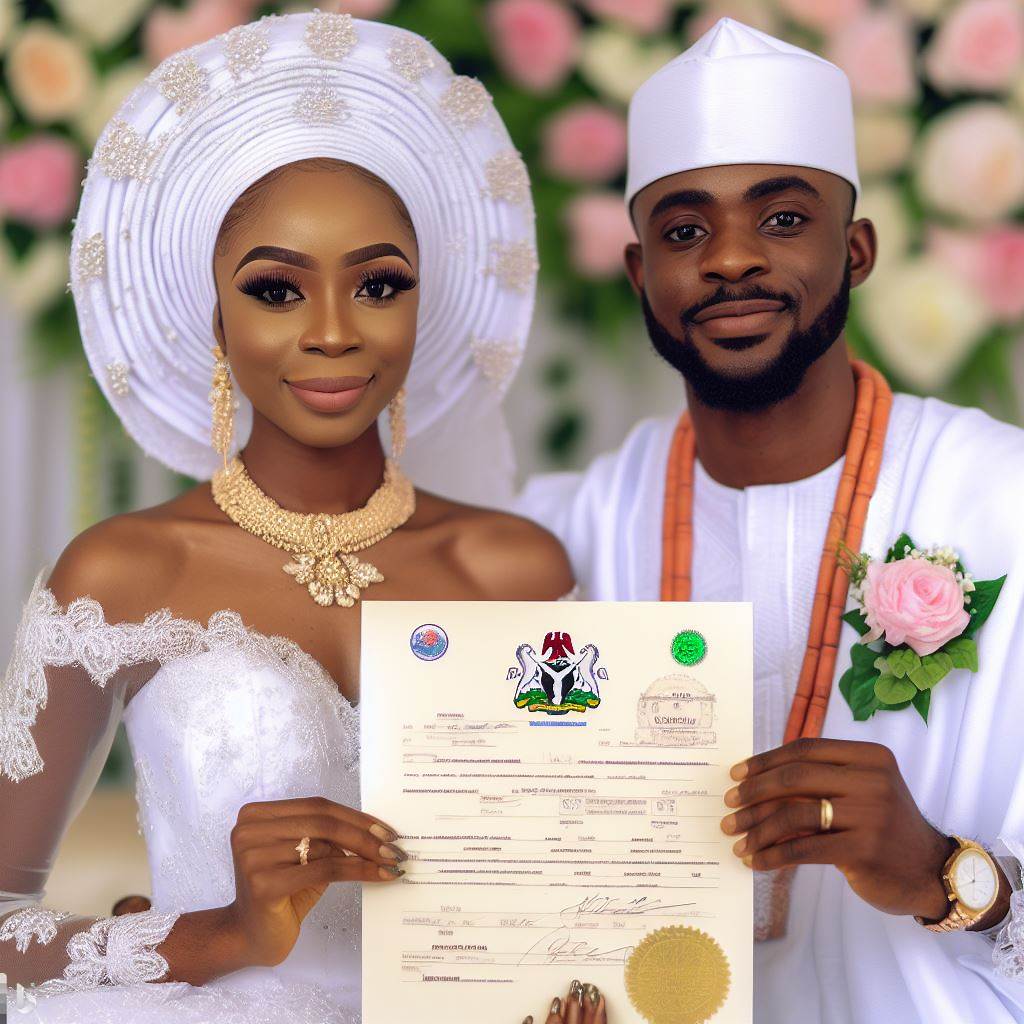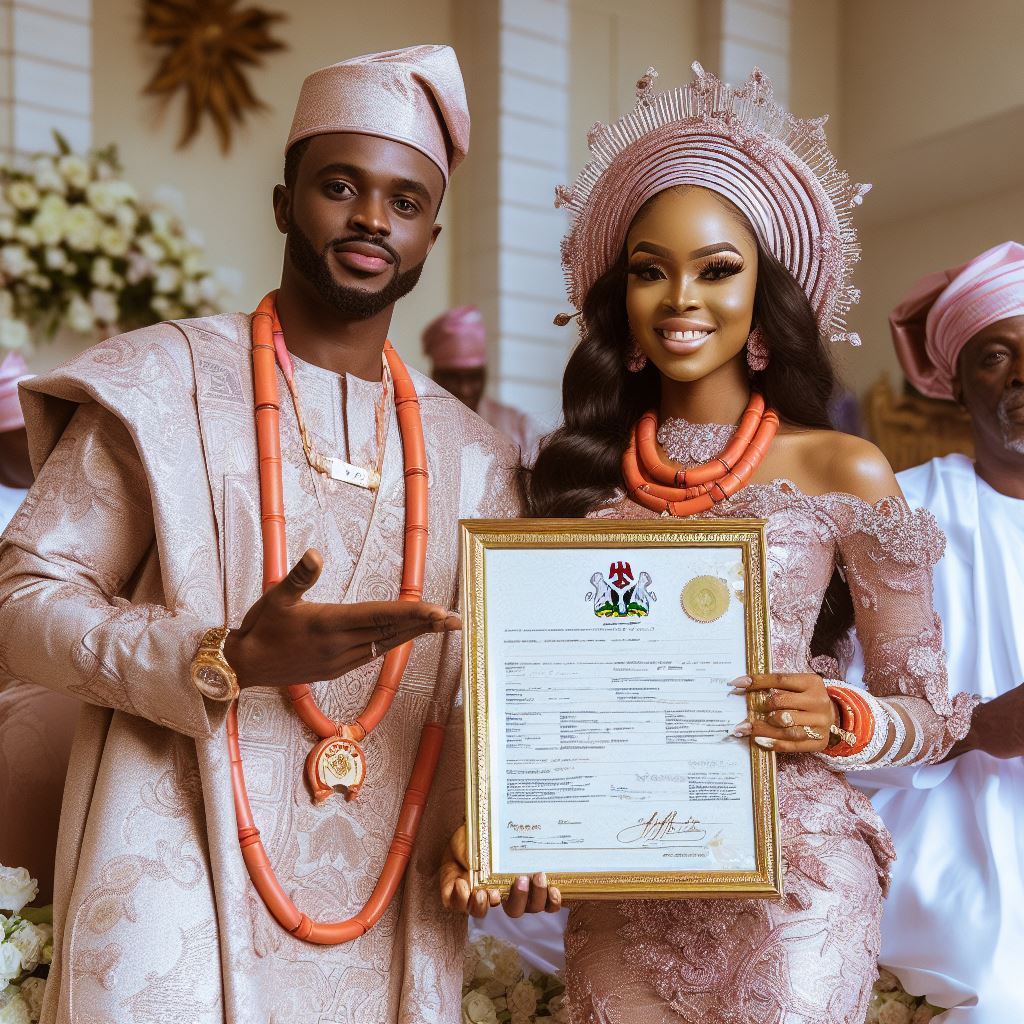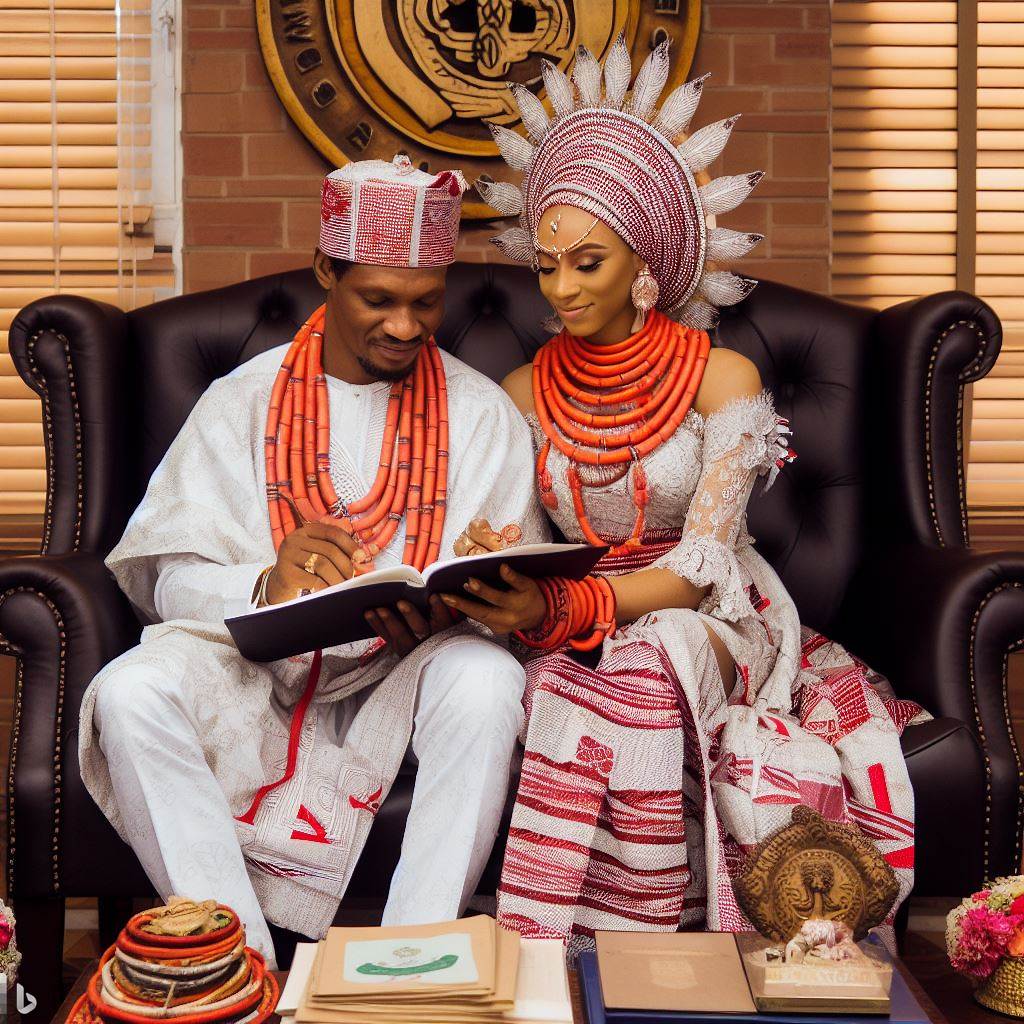Introduction
Marriage registration is crucial in Nigeria as it legalizes the union and protects the rights of the couple.
Having the required documents ensures a smooth registration process.
Marriage in Nigeria holds immense cultural, social, and legal significance.
It serves as a declaration of commitment and signifies the formation of a new family unit.
Registering the marriage with the appropriate authorities is vital to obtain legal recognition and protection.
Obtaining the necessary documents for marriage registration is essential.
The most important document is the marriage certificate, which serves as proof of the union.
It is required for various legal purposes such as inheritance, property rights, and divorce proceedings.
Additionally, a valid identification document, either a national ID card or a passport, is necessary.
This helps establish the identity of the individuals involved and ensures the legality of the marriage.
Proof of age is another crucial requirement.
It can be fulfilled by presenting a birth certificate, age declaration, or a sworn affidavit.
This ensures that both parties are of legal age and capable of entering into a marriage contract.
Furthermore, evidence of marital status or proof of divorce is needed for individuals who have been previously married.
This can be in the form of a divorce certificate or a death certificate if the previous spouse is deceased.
Other documents that may be required include passport-sized photographs, witnesses’ identification documents, and any additional documentation specific to the state where the marriage is being registered.
In review, marriage registration in Nigeria is of utmost importance to solidify the legal status of a union and protect the rights of the couple.
Having the necessary documents ensures a smooth registration process and provides legal recognition for the marriage.
Birth Certificates
- Birth Certificates Requirement: Both parties must provide original or certified copies during marriage registration.
- Proof of Identity and Age: Birth certificates establish identity and age, ensuring legal marriage eligibility.
- Document Authenticity: Original or certified copies are crucial for authenticity; altered copies are not accepted.
- Unavailability of Birth Certificate: Explore obtaining one from the relevant government agency.
- Application Steps: Follow government agency requirements, provide necessary documents (proof of identity, age, parental information).
- Special Cases: Consult legal professionals for guidance if birth certificate is unavailable due to various reasons.
- Alternative Documents: Use sworn affidavits, school records, or baptismal certificates as supporting evidence if birth certificate is unavailable.
- Legal Compliance: Ensure all required documents are provided to meet legal marriage registration criteria.
- Smooth Process: Proper documentation ensures a smooth and successful marriage registration process.
- Consultation: Seek professional advice when facing difficulties in obtaining necessary documents for marriage registration.
- Evidence Gathering: Gather alternative documentation and evidence to prove identity and age if birth certificate is unavailable.
- Supporting Documents: Use alternative forms of documentation alongside identification papers for eligibility verification.
- Role of Birth Certificates: Birth certificates are fundamental in establishing legal marriage eligibility and identity.
- Professional Guidance: Legal experts can assist in navigating challenges related to missing birth certificates for marriage registration.
- Legal Requirements: Fulfilling all legal criteria is vital for a successful and lawful marriage registration process.
In summary, birth certificates are essential for marriage registration.
Providing original or certified copies ensures authenticity.
If unavailable, explore obtaining one through the government, consult professionals, and gather alternative documents.
Meeting legal requirements guarantees a smooth marriage registration process.
Read: Marriage Forms in Nigeria: A Comprehensive Guide for Couples
Age Declaration
- Visit Local Government Area (LGA): Start by going to your LGA, where age declarations are processed.
- Provide Supporting Documents: Submit documents like baptismal cards or school records to verify your age claim.
- Fill Application Form: Complete the form provided by authorities, ensuring accuracy before submission.
- Swear an Affidavit: Affirm the truthfulness of your information through a legal affidavit.
- Pay Required Fees: Inquire about fees, varying by LGA, and pay the specified amount.
- Verification Process: Authorities verify your details after submitting the application, documents, affidavit, and fees.
- Collect Age Declaration: Once verified, collect your age declaration from the LGA authorities.
Obtaining an age declaration involves visiting the LGA, providing supporting documents, filling an application, swearing an affidavit, paying fees, undergoing verification, and collecting the declaration.
Accuracy and honesty are crucial for a smooth process.
Read: Public vs. Private Proposals: What Works Best in Nigeria?

Identification Documents
When it comes to getting officially married in Nigeria, there are several important documents that couples need to present to the relevant authorities.
These documents serve as proof of identity and legal eligibility to enter into a marital union.
In this section, we will explore the key identification documents required for marriage registration in Nigeria.
1. Acceptable Forms of Identification Documents
Before initiating the marriage registration process, it is vital to have the correct identification documents on hand.
The following forms of identification are considered acceptable in Nigeria:
- National ID Card
- International Passport
- Driver’s License
2. Presentation of Identification Documents
Both parties involved in the marriage must present their valid identification documents during the registration process.
This includes the bride and groom.
3. Valid and Up-to-date Documents
It is crucial that the identification documents presented are valid and up-to-date.
Expired documents may not be accepted and could lead to delays or complications during the registration process.
Marriage registration in Nigeria requires the careful handling of important identification documents.
Make sure you have the necessary documents in order before initiating the process to avoid unnecessary delays or complications.
Read: Inspirational Nigerian Love Stories Told Through Books
Discover More: Solomon’s Song: Exploring Love and Passion in Scripture
Divorce or Death Certificates (if applicable)
- Contact the Court or Hospital: Reach out to the court for divorce certificates or the hospital/vital records office for death certificates.
- Provide Necessary Information: Furnish details like dates, names, and other relevant information for processing.
- Obtain Divorce Certificate: The court issues divorce certificates after verifying the provided details.
- Obtain Death Certificate: The vital records office or hospital provides an official death certificate after verification.
- For Foreign Cases: If divorce or death occurred abroad, contact relevant authorities, understand requirements, provide documents, pay fees, and await processing.
- Plan Accordingly: Be aware of time frames to prevent delays in the marriage registration process.
- Ensure Compliance: Providing divorce or death certificates validates marital status, ensuring a smooth, legal registration process.
Read: The Influence of Religion on Marriage: Must-Read Books
Consent Forms (if applicable)
- Consent forms are essential for individuals under Nigeria’s legal marriage age (18).
- Parents or guardians must provide consent, following specific procedures.
- Legal requirements protect the rights and interests of underage individuals.
- Obtaining consent forms ensures the individuals are not coerced into marriage.
- These procedures confirm that young individuals understand marriage’s implications and responsibilities.
- If consent is refused, the marriage registration cannot proceed, safeguarding young individuals’ rights.
- Following legal procedures for underage marriages upholds the principles of safeguarding individuals’ rights and welfare.
Conclusion
The key documents needed for marriage registration in Nigeria include an application form, affidavit of bachelorhood/spinsterhood, birth certificates, and passport photographs.
Additionally, you will need evidence of payment of marriage fees and a letter of consent if under 21 years old.
It is important to gather all necessary documents to ensure a smooth registration process and to avoid any delays or complications.
To ensure you have all the correct documents, it is advisable to seek guidance from the relevant authorities or visit the local marriage registry office for specific requirements.
By following these steps and being prepared, you can ensure a hassle-free marriage registration experience in Nigeria.




